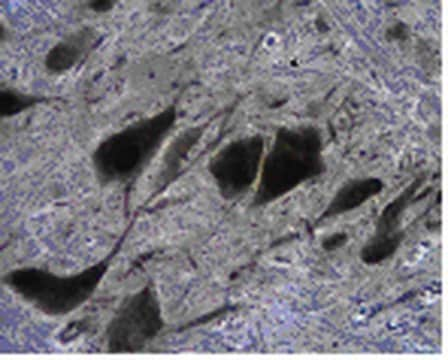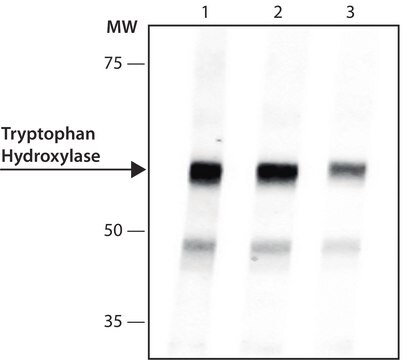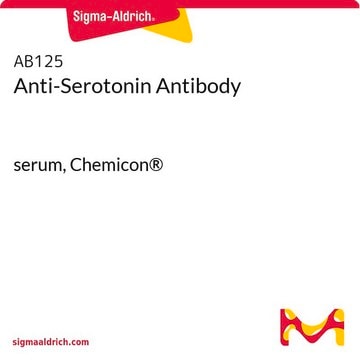T0678
Monoclonal Anti-Tryptophan Hydroxylase antibody produced in mouse
clone WH-3, ascites fluid
Sinónimos:
Anti-TPH
About This Item
Productos recomendados
biological source
mouse
conjugate
unconjugated
antibody form
ascites fluid
antibody product type
primary antibodies
clone
WH-3, monoclonal
mol wt
antigen 55 kDa
contains
15 mM sodium azide
species reactivity
human, monkey, rabbit, rat
technique(s)
immunohistochemistry: suitable
indirect ELISA: suitable
microarray: suitable
western blot: 1:1,000 using rabbit pineal gland extract
isotype
IgG3
UniProt accession no.
shipped in
dry ice
storage temp.
−20°C
target post-translational modification
unmodified
Gene Information
human ... TPH1(7166) , TPH2(121278)
rat ... Tph1(24848) , Tph2(317675)
General description
Specificity
Immunogen
Application
- enzyme-linked immunosorbent assay (ELISA)
- immunohistochemistry
- immunoblot
- immunocytochemistry
Biochem/physiol Actions
Disclaimer
¿No encuentra el producto adecuado?
Pruebe nuestro Herramienta de selección de productos.
Optional
Storage Class
10 - Combustible liquids
wgk_germany
nwg
flash_point_f
Not applicable
flash_point_c
Not applicable
Certificados de análisis (COA)
Busque Certificados de análisis (COA) introduciendo el número de lote del producto. Los números de lote se encuentran en la etiqueta del producto después de las palabras «Lot» o «Batch»
¿Ya tiene este producto?
Encuentre la documentación para los productos que ha comprado recientemente en la Biblioteca de documentos.
Los clientes también vieron
Nuestro equipo de científicos tiene experiencia en todas las áreas de investigación: Ciencias de la vida, Ciencia de los materiales, Síntesis química, Cromatografía, Analítica y muchas otras.
Póngase en contacto con el Servicio técnico









